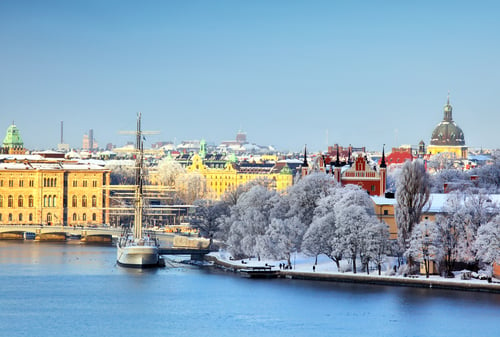BUSINESS
Sweden ranked fifth best country for business
Forbes magazine has ranked Sweden as the fifth best country in the world for business.
Published: 18 December 2014 08:55 CET

Central Stockholm in the winter. Photo: Shutterstock.
Sweden was noted for its high ranking in innovation (seventh) and monetary freedom (eighth), which helped push Sweden to the top five in the ranking of 146 countries.
"Aided by peace and neutrality for the whole of the 20th century, Sweden has achieved an enviable standard of living under a mixed system of high-tech capitalism and extensive welfare benefits," Forbes explained.
Forbes also gave the nod to Sweden's "excellent internal and external communications" and highly skilled labour force, as well as the fact that it turned down the euro in 2003.
It added that since the recession in 2008, Sweden's economy has seen both ups and downs due to deteriorating global conditions and a weakness in the EU – both of which affect Sweden's strong reliance on foreign trade.
Neighbouring Denmark topped the list for the fourth time since 2008, with Forbes highlighting Denmark's "flexisecurity" model, which allows employers to easily hire and fire workers while also allowing for generous unemployment benefits and job training for those who are out of work.
The Forbes Best Countries for Business report ranked the 146 countries according to eleven factors: property rights, innovation, taxes, technology, corruption, freedom (personal, trade and monetary), red tape, investor protection and stock market performance.
Nordic neighbours Norway and Finland were also among Forbes' top ten countries for business.
Forbes' Best Countries for Business
1. Denmark
2. Hong Kong
3. New Zealand
4. Ireland
5. Sweden
6. Canada
7. Norway
8. Singapore
9. Switzerland
10. Finland
Url copied to clipboard!


 Please whitelist us to continue reading.
Please whitelist us to continue reading.
Member comments